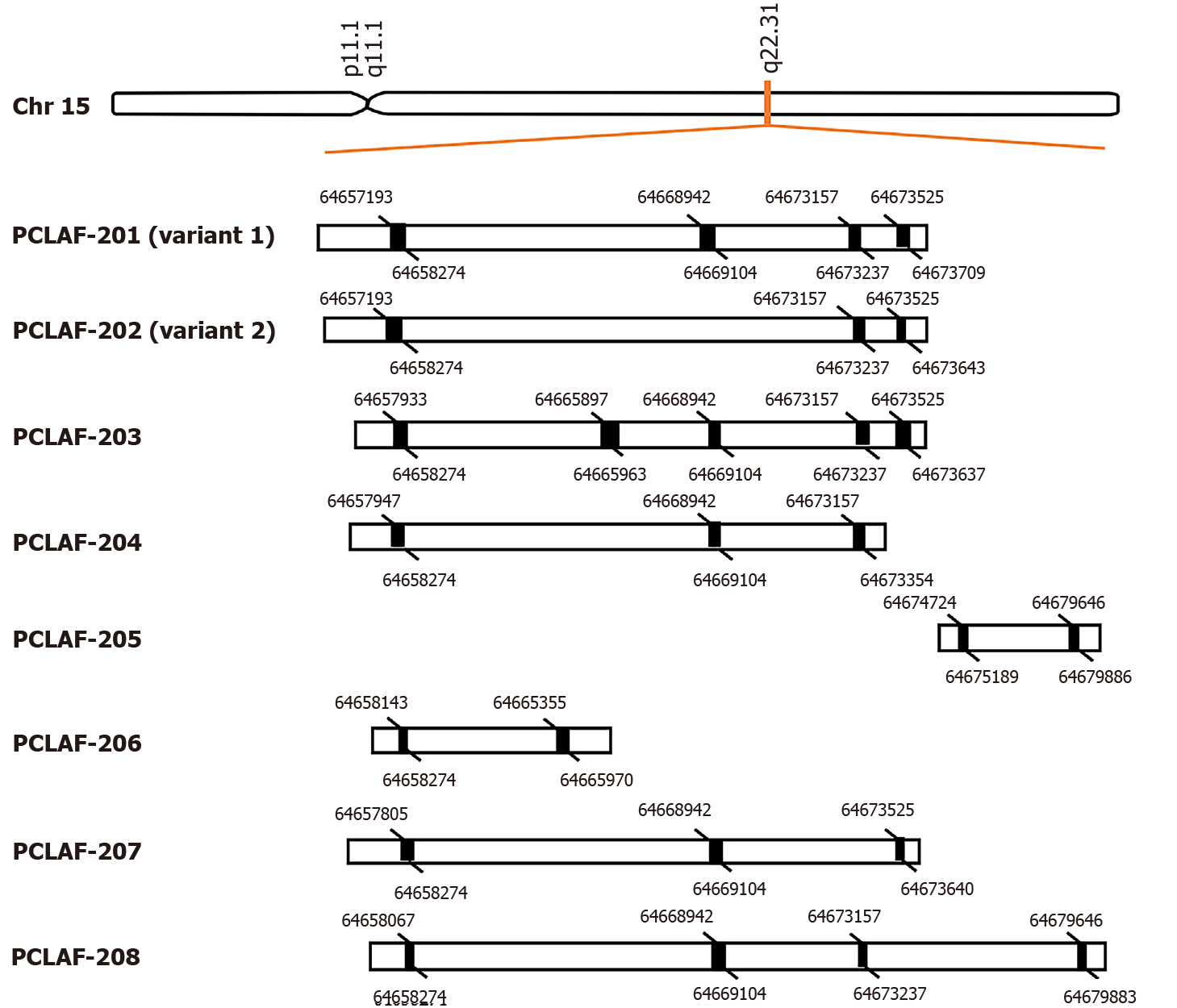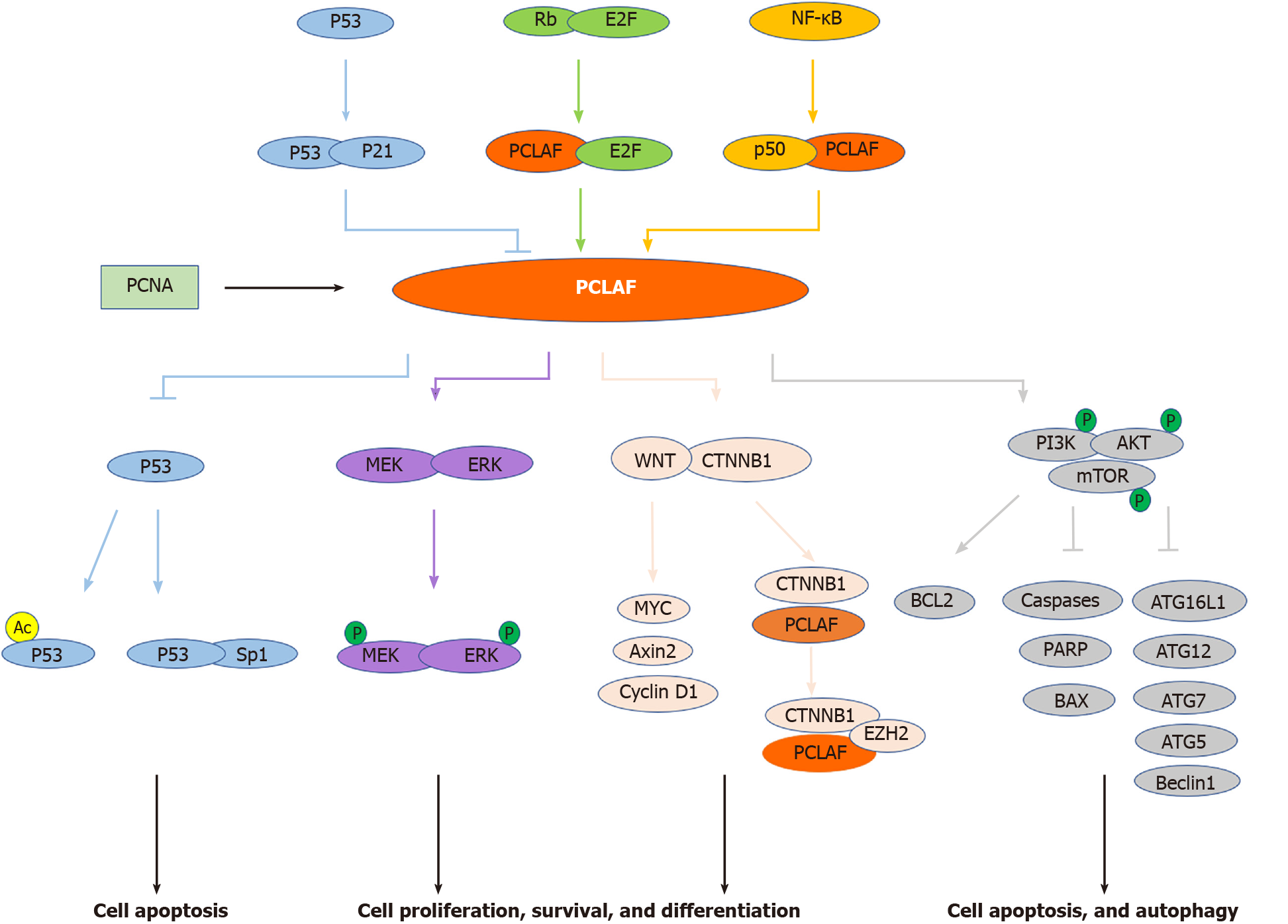Copyright
©The Author(s) 2021.
World J Gastrointest Oncol. Oct 15, 2021; 13(10): 1425-1439
Published online Oct 15, 2021. doi: 10.4251/wjgo.v13.i10.1425
Published online Oct 15, 2021. doi: 10.4251/wjgo.v13.i10.1425
Figure 1 Alternative pre-mRNA splicing of proliferating cell nuclear antigen clamp associated factor.
Proliferating cell nuclear antigen clamp associated factor (PCLAF), maps to human chromosome 15q22.31, can be spliced into eight different transcripts, including two known protein-coding transcripts (PCLAF-201; 202), two putative protein-coding transcripts (PCLAF-203; 207), and four known processed transcripts (PCLAF-204; 205; 206; 208). The black rectangles represent exons. The figure indicates the spliced bases of each exon.
Figure 2 Signal pathways involved in proliferating cell nuclear antigen clamp associated factor-mediated cancers.
Proliferating cell nuclear antigen (PCNA) clamp associated factor (PCLAF) is a PCNA associated protein. Several pivotal pathways, including the Rb/E2F pathway, NF-κB pathway, and p53-p21 cascade, are implicated in PCLAF-mediated diseases. In addition, PCLAF contributes to some conditions through dysregulation of the p53 pathway, WNT signal pathway, MEK/ERK pathway, and PI3K/AKT/mTOR signal cascade (see text). Lines with an arrowhead indicate promotion, and lines with a bar indicate inhibition in steady-state or stress conditions. The distinct line colors indicate the different pathways implicated with PCLAF.
- Citation: Liu LJ, Liao JM, Zhu F. Proliferating cell nuclear antigen clamp associated factor, a potential proto-oncogene with increased expression in malignant gastrointestinal tumors. World J Gastrointest Oncol 2021; 13(10): 1425-1439
- URL: https://www.wjgnet.com/1948-5204/full/v13/i10/1425.htm
- DOI: https://dx.doi.org/10.4251/wjgo.v13.i10.1425










